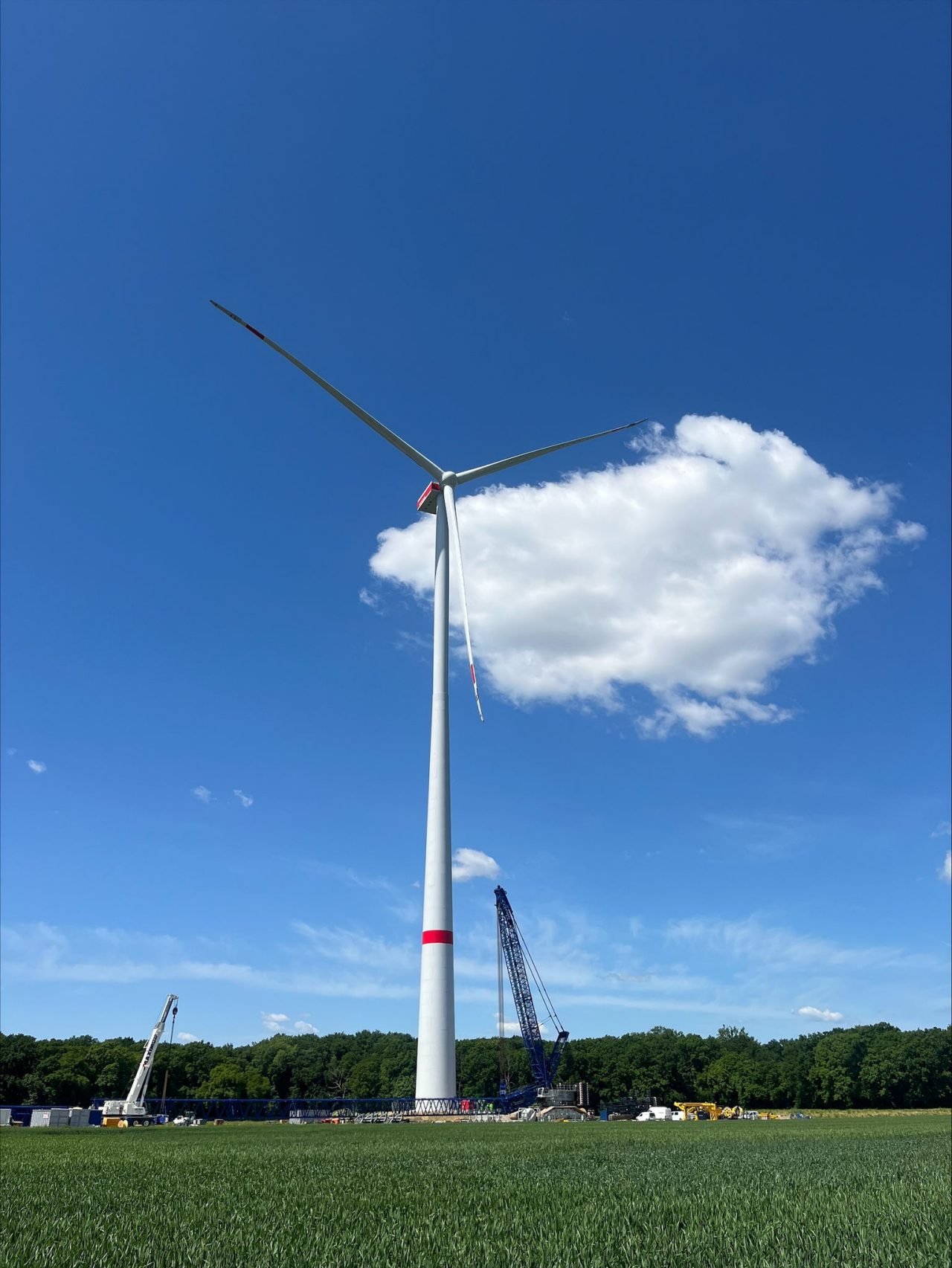Copyright © 2010-2025 Max Bögl. All rights are reserved.
With the new framework agreement, Max Bögl and Vestas, by far Max Bögl's largest customer for hybrid towers, are sealing their continued and intensified cooperation for the next three years. A gain not only for Vestas and Max Bögl, but also for the successful expansion of wind energy in Germany.
Photo credits: Vestas Wind Systems A/S
"Our partner Vestas and we are united in our mission to act sustainably and innovatively, reduce emissions, expand renewable energy plants and thereby drive forward the energy transition in Germany in a targeted manner.We have joined forces to pursue this goal in recent years and are now taking it to the next level with the new framework agreement."
Josef Knitl, Member of the Management Board of Max Bögl Wind AG
The framework agreement, which has now been concluded for a further three years, is also a response to the increased order volume as part of the 2023 wind-on-shore strategy - the package of measures from the German government at the time accelerated the approval process for wind energy projects, among other things.
The production quota agreed in the framework agreement is a stable basis for both partners to be able to meet the increasing demand and secure investments. In addition to the existing tower generations, Vestas will also offer future tower generations with hybrid towers from Max Bögl with hub heights of 164 meters up to 175 meters and soon also 199 meters on the market. "With the new framework agreement, we are securing our continuously increasing demand for hybrid towers up to and including 2028. This is an important milestone for reliable and long-term planning, both for us and for our customers," says Jens Kück, Senior Vice President Sales Onshore at Vestas Northern and Central Europe. "Vestas is investing heavily in capacity expansion for the German onshore market. The extension of the framework agreement with Max Bögl is an important element to reliably serve the high market demand for Vestas turbines and supports our ambition for a safe, affordable and sustainable energy system."
Andre Jung, Head of Procurement at Vestas Northern and Central Europe, adds: "Max Bögl has invested significantly in the expansion of its production capacities and Vestas will receive the largest share of this volume. We are thus securing production capacities at an early stage on mutually advantageous terms. This not only creates reliability in the supply chain and long-term planning security, but also strengthens our cooperation with Max Bögl - an important step for our joint success in the expansion of wind energy."
High economic efficiency, low emissions
Max Bögl uses environmentally friendly concrete for the concrete segments of its hybrid towers, 60 percent of whose main component, cement, has been substituted in the formulation. Limestone and granulated blast furnace slag are used as substitutes. "Thanks to the composition, we were able to halve the CO2 footprint. Our aim is to further reduce emissions in the future. To achieve this, we are continuously investing in our research and the further development of our innovative building material," says Josef Knitl. The high final strength of the components required for wind turbines remains unaffected by the process - as does their high recyclability at the end of their service life.
Do you have questions about the article?
Please feel free to contact us.

